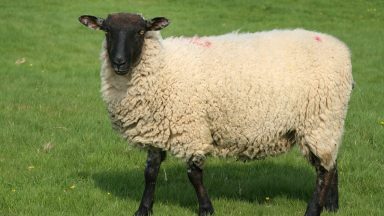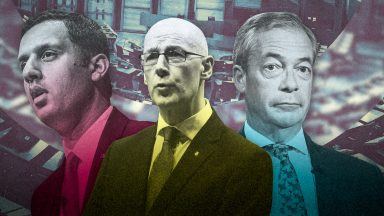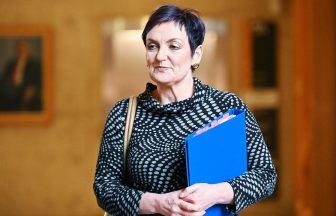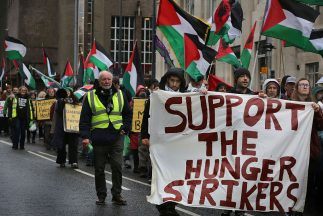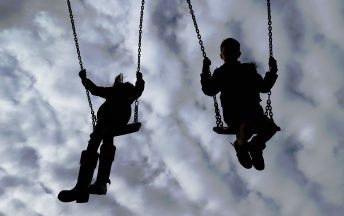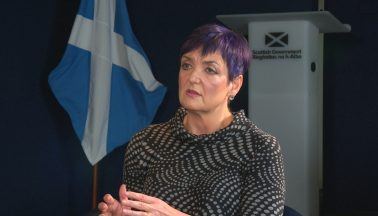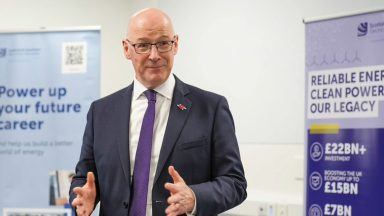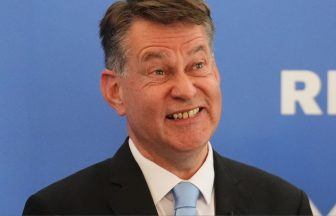King Charles has delivered the UK’s first King’s Speech in 70 years, setting out Rishi Sunak’s legislative plans for the upcoming year.
As part of the prime minister’s pledge to make “long-term decisions for a brighter future”, he set out plans to eventually ban cigarettes and new leaseholds, as well as to drill for fresh oil in the North Sea.
This King’s Speech – likely the last before a general election – is perhaps the prime minister’s biggest chance to win over voters before he and other party leaders publish their manifestos.
Note, the King refers to “my government” and “my ministers”, as is convention under his role as a constitutional monarch, however these are not his policies.
The King paid tribute to his mother the late Queen’s “legacy of service and devotion” as he conducted the state opening of Parliament for the first time as monarch.
The PM’s focus, according to the King, is on “increasing economic growth and safeguarding the health and security of the British people for generations to come”.
He said the government will “continue to take action to bring down inflation, to ease the cost of living for families and help businesses fund new jobs and investment”.
- New oil and gas fields
Across the political spectrum, politicians wants to bring in policies which reduce the UK’s reliance on foreign regimes for energy, following the war between Russia and Ukraine, which has driven up the cost of oil and gas.
In a bid to “strengthen the United Kingdom’s energy security”, the government will bring in the Offshore Petroleum Licensing Bill, which will support the licensing of drilling new oil and gas fields in the North Sea.
It may have hurt the King to announce this policy, given his outspoken support for reducing the human impact on the planet and reducing climate change.
Prime Minister Sunak says new oil and gas drilling will help the country transition to net zero carbon emissions by 2050, without adding “undue financial burdens on households”.
This claim has been disputed by climate groups, including Greenpeace which draped the PM’s house in black fabric in protest at the announcement of new oil and gas fields.
Watch: King Charles visits Parliament to deliver the first King’s Speech in 70 years
- Rail reforms
After controversially scrapping the northern leg of high speed rail (HS2), meaning the line will no longer go beyond Birmingham, the PM announced ‘Network North’ as its replacement.
King Charles said the plan will “deliver faster and more reliable journeys between, and within, the cities and towns of the North and Midlands, prioritising improving the journeys that people make most often”.
The prime minister has previously said £36 billion previously ring-fenced for HS2 from London to Manchester would instead be allocated to Network North.
He said that means “every region outside of London will receive the same or more government investment than they would have done under HS2”.
- Educations reforms
The PM has long talked of plans to force youngsters to study mathematics until they are 18, and he hopes to achieve that by overhauling the post-16 education system.
He will scrap A-levels and swap them with a new qualification called the Advanced British Standard (ABS).
The ABS will be a qualification “that takes the best of A-levels and T Levels and brings them together into a single qualification”, the Department for Education (DfE) said, however it is not expected to be fully implemented for a decade.
Along with maths, pupils will be required to study four other subjects.
The King said it will “bring technical and academic routes into a single qualification, adding: “Proposals will be implemented to reduce the number of young people studying poor university degrees and increase the number undertaking high quality apprenticeships.
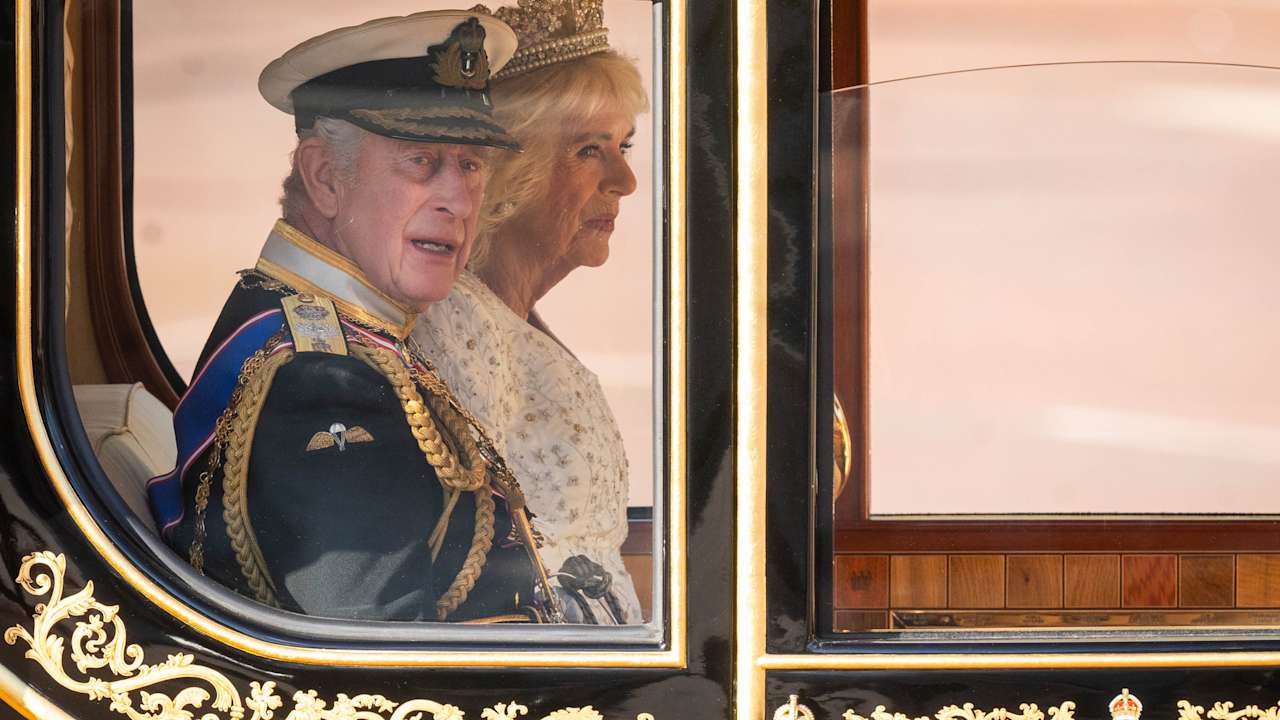
- An eventual ban of cigarettes
The PM has previously announced plans to stop children who turn 14 this year – and those younger – from ever being able to legally buy cigarettes or tobacco in England.
Anyone born on or after January 1, 2009 – in effect anyone who is 14 or younger now – will not legally be able to buy cigarettes in England during their lives, as the smoking age is raised by one year every year, meaning they will never catch up.
Mr Sunak said the move would mean “a 14-year-old today will never legally be sold a cigarette and that they and their generation can grow up smoke-free”.
The government hopes it will lead to up to 1.7 million fewer people smoking by 2075, and has the potential for smoking to be phased out completely among young people as early as 2040.
Smoking will not be criminalised and the phased approach means anyone who can legally buy cigarettes now will not be prevented from doing so.
However, older people may have to carry ID if they want to buy cigarettes in the future.
- Football regulation
Plans for a new independent football regulator were confirmed in February, with the body set to have “targeted powers” to step in and resolve how money flows from the Premier League down the pyramid.
King Charles said the Football Governance Bill will “safeguard the future of football clubs for the benefit of communities and fans”.
- Law and order
The government, King Charles said, will introduce policies which “keep communities safe from crime, anti-social behaviour, terrorism and illegal migration”.
already-announced proposals to mean killers convicted of the most horrific murders should expect whole life orders, meaning they will never be released, while rapists and other serious sexual offenders will not be let out early from prison sentences.
Other measures include giving police the power to enter a property without a warrant to seize stolen goods, such as phones, when they have reasonable proof that a specific stolen item is inside.
The new Criminal Justice Bill will include widely trailed measures to ensure reasonable force can be used to make offenders appear in the dock to face their victims for sentencing, or risk having up to two years added to their jail term.
It will also make being in a grooming gang an aggravating feature for sentencing, meaning tougher punishments for ringleaders and members.
The Sentencing Bill will mean a whole life order will be handed down in the worst cases of murder, with judges having discretion to impose a shorter tariff only in exceptional circumstances.
The legislation will also ensure that rapists and serious sexual offenders serve the whole of their sentence behind bars, without being released early on licence.
A Victims and Prisoners Bill will give ministers the power to block parole for the worst offenders and ban them from marrying in prison.
All 21 laws announced in the King’s Speech
- Offshore Petroleum Licensing Bill
- Trade (Comprehensive and Progressive Agreement for Trans-Pacific Partnership) Bill
- Automated Vehicles Bill
- Digital Markets, Competition, and Consumers Bill
- Data Protection and Digital Information Bill
- Media Bill
- Arbitration Bill
- Draft Rail Reform Bill
- Tobacco and Vapes Bill
- Leasehold and Freehold Bill
- Renters (Reform) Bill
- Football Governance Bill
- Pedicabs (London) Bill
- Holocaust Memorial Bill
- Animal Welfare (Livestock Exports) Bill
- Economic Activities of Public Bodies (Overseas Matters) Bill
- Sentencing Bill
- Criminal Justice Bill
- Investigatory Powers (Amendment) Bill
- Terrorism (Protection of Premises) Bill
- Victims and Prisoners Bill
What is a King’s Speech and the state opening of Parliament?
A King’s Speech takes place during the state opening of Parliament, which restarts the parliamentary session and allows the government to set out plans for the year ahead.
It traditionally happens once a year however this is not always the case as the government will not prorogue Parliament (end the session) if important legislation is progressing through the Commons.
The impasse over how to leave the EU led to the longest Parliamentary session since 1640.
Despite being read by the King, the speech is drafted by the government and the monarch has no involvement.
When the King leaves, a new parliamentary session starts and Parliament gets back to work.
The contents of the speech are then debated by Members of both Houses and an ‘Address in Reply to His Majesty’s Gracious Speech is agreed.
Over the following days, the planned legislative programme is debated and then the Commons vote on the monarch’s speech.
Follow STV News on WhatsApp
Scan the QR code on your mobile device for all the latest news from around the country











